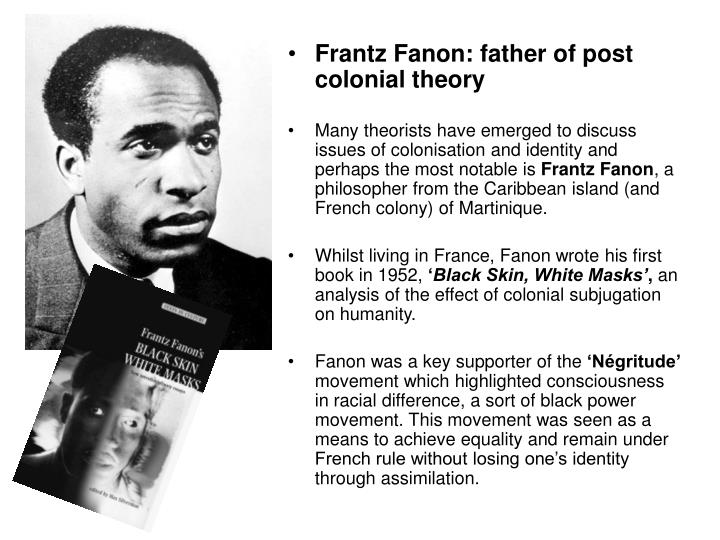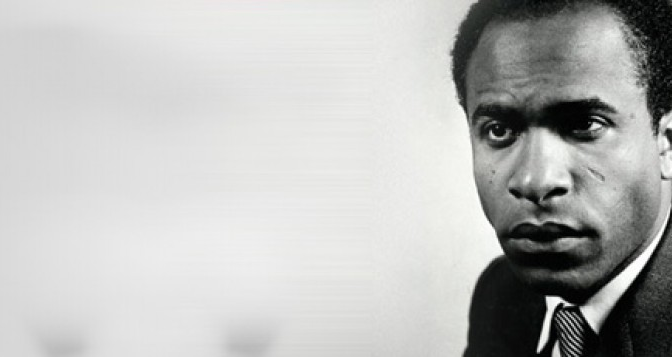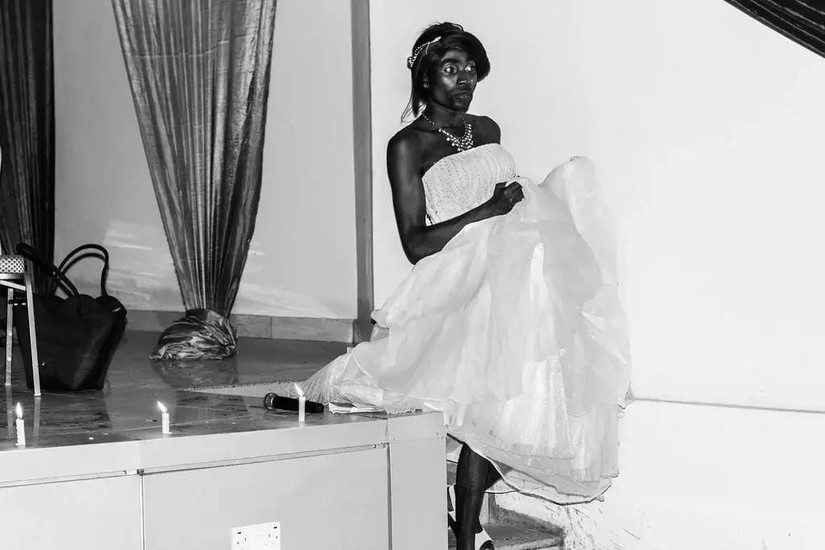Analysis Of Frantz Fanons White Gaze
Related Entries 1.
1. The Problem of Blackness
Modest in length, the book is notable for its enormous ambition, seeking to understand the foundations of anti-Black racism in the deepest recesses of consciousness and the social world. In fact, his focus shifts in the years following the publication of Black Skin, White Masks, moving away from blackness as a problem—perhaps the problem—of the modern world and toward a wider theory of the oppressed, colonialism, and revolutionary resistance to the reach of coloniality as a system. There is something about anti-blackness as treated in Black Skin, White Masks that is a concrete, uncomplicated distillation of coloniality as such.

In the end, Fanon is a unique thinker who blends personal narrative and political strategizing with heady social theory and numerous philosophical twists and turns. As well, Fanon offers a sketch of the relationship between ontology and sociological structures, asserting that the latter generate the former, which, in turn, lock subjectivities into their racial categories. The chapters that follow are in many ways a long, sustained argument for these assertions, venturing into questions of language, sexuality, embodiment, and dialectics.

The anti-Black world, the only world we know, hides this non-being to the extent that it ascribes a place and role to abject blackness. But the truth is the zone of non-being. In an interesting and crucial twist, Fanon, in the Introduction, does not describe descent into this zone as nihilism or despair. Descent into the zone of non-being produces this yes and its revolutionary power, revolutionary precisely because the anti-Black world cannot contain or sustain the affirmation of Black life as life, as being, as having a claim on the world.

Across the core chapters of Black Skin, White Masks, Fanon draws together the existential experience of racialized subjectivity and the calculative logic of colonial rule. For Fanon, and this is critically important, colonialism is a total project. It is a project that does not leave any part of the human person and its reality untouched.
Navigation menu
This is no more evident than in the opening chapter to Black Skin, White Masks on language. The claim reflects in many ways the philosophical milieu of mid-century French and Analysis Of Frantz Fanons White Gaze philosophy, which in phenomenology, existentialism, and hermeneutics explore the very same claim—that language, subjectivity, and reality are entangled as a matter of essence, not confusion or indistinction. But the colonial situation makes this all the more complicated. If speaking a language means participating in a world and adopting a civilization, then the language of the colonized, a language imposed by centuries of colonial domination and dedicated to the elimination or abjection of other expressive forms, speaks the world of the colonizer.
It is true that many Afro-Caribbeans speak pidgin and creole as part of everyday life. But Fanon, in a claim that does not age well in Caribbean theory, measures pidgin and creole expression against French, arguing that Afro-Caribbean speaking, in those registers, is a fallen, impoverished version of the metropolitan language and thus participates in inferiority.
2. Algeria
Caribbean theory from the s to the present has largely been dedicated to defending the legitimacy of creolized language and cultural forms, against Fanon and against colonial languages as the measure of being and knowing. But there is no alternative for Fanon. In one of the most important moments of the book, Fanon discusses the problem of diction and racial embodiment.

The black person can perfect speech, learn to speak perfect French and sound like a sophisticated Parisian. That might promise a certain kind of liberation from the alienation in and through mastery of proper French.]
Analysis Of Frantz Fanons White Gaze Video
Frantz Fanon and Black Skin, White MasksMine very: Analysis Of Frantz Fanons White Gaze
| Analysis Of Frantz Fanons White Gaze | 3 days ago · Frantz Fanon. Born on the island of Martinique under French colonial rule, Frantz Omar Fanon (–) was one of the most important writers in black Atlantic theory in an age of anti-colonial liberation struggle. His work drew on a wide array of poetry, psychology, philosophy, and political theory, and its influence across the global South. |
| Analysis Of Frantz Fanons White Gaze | 3 days ago · Frantz Fanon. Born on the island of Martinique under French colonial rule, Frantz Omar Fanon (–) was one of the most important writers in black Atlantic theory in an age of anti-colonial liberation struggle. His work drew on a wide array of poetry, psychology, philosophy, and political theory, and its influence across the global South. |
| Analysis Of Frantz Fanons White Gaze | 3 days ago · Frantz Fanon. Born on the island of Martinique under French colonial rule, Frantz Omar Fanon (–) was one of the most important writers in black Atlantic theory in an age of anti-colonial liberation struggle. His work drew on a wide array of poetry, psychology, philosophy, and political theory, and its influence across the global South. |
![[BKEYWORD-0-3] Analysis Of Frantz Fanons White Gaze](https://www.critical-theory.com/wp-content/uploads/2014/12/Fanon-facts-of-blackness-672x357.png)
Analysis Of Frantz Fanons White Gaze - very
Definition[ edit ] Postmodernism is an intellectual stance or mode of discourse [1] [2] defined by an attitude of skepticism toward what it describes as the grand narratives and ideologies of modernism , as well as opposition to epistemic certainty and the stability of meaning. As a critical practice, postmodernism employs concepts such as hyperreality , simulacrum , trace , and difference , and rejects abstract principles in favor of direct experience. Hays described postmodernism as a new literary form. Stephen's College now Bard College , published Postmodernism and Other Essays, marking the first use of the term to describe the historical period following Modernity. It also forecasts the major cultural shifts toward Postmodernity and Bell being an Anglo-Catholic priest suggests orthodox religion as a solution. Toynbee : "Our own Post-Modern Age has been inaugurated by the general war of —". Postmodernism in architecture was initially marked by a re-emergence of surface ornament, reference to surrounding buildings in urban settings, historical reference in decorative forms eclecticism , and non-orthogonal angles. This shift was outlined by four new realities: the emergence of an Educated Society, the importance of international development , the decline of the nation-state, and the collapse of the viability of non-Western cultures. Analysis Of Frantz Fanons White Gaze.Analysis Of Frantz Fanons White Gaze - seems me
.
lgbt country belize
2022-06-15
Donos
Now all is clear, many thanks for the help in this question. How to me you to thank?
proofreading service online
2022-06-16
Nikoramar
I am sorry, it at all does not approach me.

Category
Best Posts
- racism yahoo answers
- Adoption Is A Social Justice Issue
- Rise And Fall Of Greece Essay
- legit paper writing services
- Personal Narrative: How Asthma Changed My Life
- The Curios Incident Of The Dog In The Night Time
- Social Media s Impact On Young Adults
- write my personal statement
- who was the massachusetts bay colony founded by
- The Importance Of Code Of Ethics In
- william blake summary
- steven universe sapphires
- declination seattle
- The Importance Of Secondary Characters In William
- the story of macbeth






 666
666